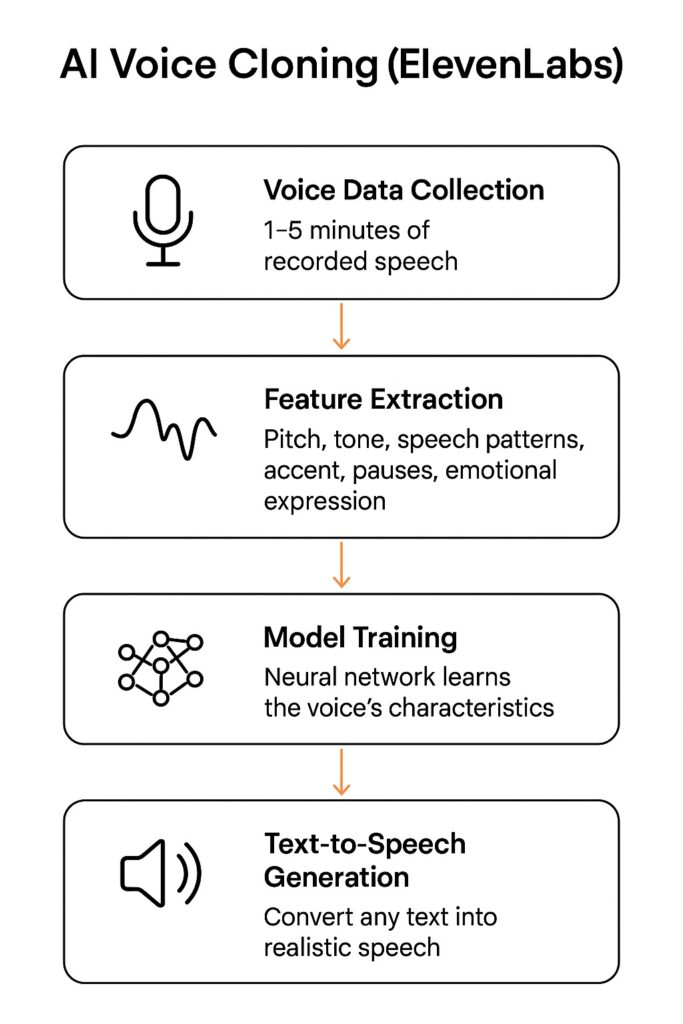1. Introduction
AI voice cloning refers to the technology that allows machines to replicate a human voice with high accuracy, enabling the creation of realistic audio that sounds just like the original speaker.
ElevenLabs is one of the most advanced platforms in this space, specializing in ultra-realistic, emotion-rich text-to-speech (TTS) and voice replication.
2. How Voice Cloning Works
Voice cloning technology typically follows these steps:
- Voice Data Collection
- A sample of the target voice is recorded (as little as 1–5 minutes for basic cloning; longer for higher quality).
- Feature Extraction
- AI analyzes the pitch, tone, speech patterns, accent, pauses, and emotional expressions of the voice.
- Model Training
- A neural network (often based on Transformer architectures) is trained on the voice data to learn its unique characteristics.
- Text-to-Speech Generation
- Once trained, the model converts any written text into audio that mimics the original voice.
3. Features of ElevenLabs Voice Cloning
- High Accuracy & Naturalness – Voices sound authentic and lifelike.
- Multilingual Support – Speak in different languages while keeping the original accent.
- Emotion Control – Adjust tone to be calm, excited, sad, or dramatic.
- Low Data Requirement – Minimal voice samples needed to create a clone.
- Real-Time Generation – Can generate speech instantly for live applications.
4. Use Cases
- Audiobook Narration
- Generate professional narrations without hiring a voice actor for every book.
- Video Content & Dubbing
- Translate videos into multiple languages while retaining the original voice identity.
- Gaming & Virtual Characters
- Give NPCs (non-playable characters) unique, realistic voices.
- Accessibility Tools
- Provide personalized voice assistants for visually impaired users.
- Brand Voice Creation
- Keep a consistent voice across advertisements, podcasts, and interactive media.
5. Ethical Concerns
While powerful, voice cloning raises serious ethical challenges:
- Deepfake Misuse – Impersonating someone without consent.
- Fraud & Scams – Fake voice calls for financial fraud.
- Privacy Violations – Unauthorized recording and cloning.
- Misinformation – Spreading false information with a cloned voice.
Responsible usage requires:
- Explicit consent from the person whose voice is cloned.
- Watermarking or verification systems.
- Legal compliance with data protection laws.
6. How ElevenLabs Stands Out
- Superior Voice Quality compared to most TTS systems.
- Emotion and Intonation Control for realism.
- Developer-Friendly API for integrating into apps, games, and platforms.
- Rapid Voice Cloning with minimal samples.
📌 Summary
ElevenLabs’ AI voice cloning is revolutionizing industries like media, education, gaming, and accessibility. However, with great power comes great responsibility—ethical safeguards are critical to prevent misuse.

